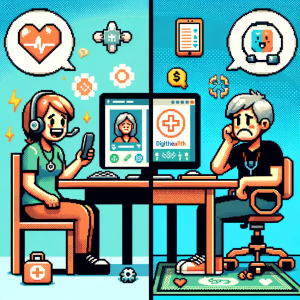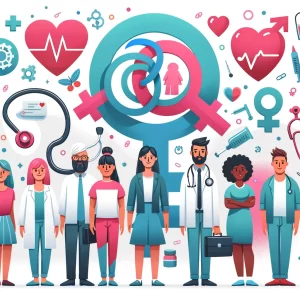
How FIFA’s Playbook Could Revolutionize Global Health Equity
When you think about FIFA, global health probably isn’t the first thing that comes to mind. Yet, a recent article suggests (will download a .pdf) that the international governing body of soccer could offer valuable lessons for achieving fairer benefit-sharing in global health. Specifically, the authors propose adapting FIFA’s training compensation and solidarity mechanisms to create a novel framework for equitable data sharing in pandemic preparedness and response (PPR). Let’s explore this fascinating idea and its potential to tackle one of global health’s biggest challenges.
The Problem: Inequities in Data Sharing
Pandemics thrive on delay and division. Data sharing—especially early and comprehensive access to public health and genomic surveillance data—is critical for pandemic prevention, preparedness, and response. But here’s the catch: while low- and middle-income countries (LMICs) often contribute significantly to the global data pool, they rarely see equivalent benefits.
Take the case of the COVID-19 pandemic. South African and Botswanan scientists who identified the Omicron variant faced punitive travel restrictions instead of recognition and reward. Unsurprisingly, this fosters reluctance to share data, undermining global health security.
Existing frameworks like the International Health Regulations (IHR) and the Pandemic Influenza Preparedness (PIP) Framework aim to encourage data sharing. However, they lack the teeth to enforce compliance or provide meaningful incentives, particularly for LMICs. Enter FIFA’s benefit-sharing model, an unexpected but potentially transformative approach.
Lessons from FIFA: Compensation and Solidarity
FIFA’s benefit-sharing system compensates local soccer clubs for their contributions to player development. It does this through two key mechanisms:
- Training Compensation: Clubs receive payments when players they’ve trained sign their first professional contract or transfer to other teams. This acknowledges and rewards grassroots investment.
- Solidarity Payments: When players move between teams, a portion of the transfer fee (up to 5%) is distributed to all clubs that contributed to the player’s development. Unlike training compensation, this mechanism provides long-term benefits.
These systems incentivize smaller clubs to nurture talent, ensuring a more equitable distribution of financial gains across the soccer ecosystem. Could a similar approach work in global health?
A FIFA-Inspired Model for Global Health
Imagine a centralized “clearing house” for global health data. This entity, modeled after FIFA’s system, would track data contributions and ensure fair benefit distribution. For example:
- Training Compensation for Data Sharing: Countries providing critical surveillance data could receive immediate financial or non-monetary benefits, such as access to vaccines or technology.
- Solidarity Payments: When data leads to the development of profitable interventions like vaccines or therapeutics, a portion of the proceeds could flow back to data-contributing countries.
This approach could address the current imbalance, where resource-rich nations and private companies disproportionately benefit from LMIC contributions.
Overcoming Hurdles
Adapting FIFA’s model isn’t without challenges. Global health lacks a single governing body like FIFA to enforce rules. Securing international buy-in requires balancing diverse needs and capacities. Additionally, the dynamic nature of pandemics means the system must be flexible enough to handle pre-pandemic, pandemic, and post-pandemic phases.
Another consideration is the “value trajectory” of data. Unlike soccer players, whose value peaks during their professional careers, the value of public health data often becomes apparent much later, sometimes not at all. Any benefit-sharing system must account for these differences to ensure fairness.
Why This Matters Now
The urgency couldn’t be clearer. With discussions underway for a new pandemic accord and updates to the IHR, now is the time to rethink benefit-sharing. The COVID-19 pandemic exposed glaring inequities in global health, but it also highlighted the power of collective action. By adapting lessons from FIFA, we have a chance to build a system that not only incentivizes data sharing but also strengthens global solidarity.
Imagine a world where countries that contribute to pandemic preparedness are rewarded, not penalized. Where data sharing isn’t just a moral imperative but a practical and equitable exchange. The FIFA model offers a blueprint for this vision.
Join the Conversation
What do you think about applying FIFA’s benefit-sharing mechanisms to global health? Have you experienced or witnessed inequities in data sharing during public health crises? Share your thoughts in the comments or join the discussion on social media using #GlobalHealthEquity.
Empower Your Network – Subscribe and Share!
Unlock key insights with ‘This Week in Public Health.’ Subscribe for free and share to drive change as part of a dedicated community. If you liked this blog, please share it! Your referrals help This Week in Public Health reach new readers.



